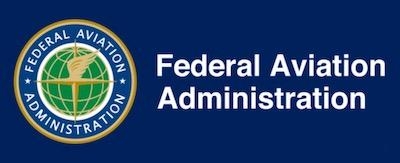Wants To Assure Fuels Meet ASTM Standards
The FAA has revised its Special Airworthiness Information Bulletin (SAIB) advising aircraft operators, fixed base operators, certificated repair facilities, Flight Standard District Offices, Certificate Management Offices, and Foreign Civil Aviation Authorities that jet fuel made from the following synthetic blending components that meet the requirements of ASTM International Standard D7566 are acceptable for use on aircraft and engines certificated for operation with D1655 Jet A or Jet A-1 jet fuel if they are re-identified as D1655 fuel:

-Fischer Tropsch synthesized isoparaffinic kerosene (FT-SPK),
-hydroprocessed fatty acid esters and fatty acids (HEFA),
-synthesized isoparaffins (SIP),
-Fischer Tropsch synthesized kerosene with aromatics (FT-SPK/A), and
-alcohol to jet (ATJ), and
-catalytic hydrothermolysis jet (CHJ).
When D7566 jet fuels are re-identified as D1655 fuel, they meet all the specification requirements of D1655 fuel and, therefore, meet the approved operating limitations for aircraft and engines certificated to operate with D1655 fuel, unless otherwise prohibited by the engine or aircraft type certificate (TC) holder. We are revising this SAIB to add CHJ as a synthetic blending component that conforms to ASTM International Standard D7566.
The FAA relies on ASTM International to develop fuel specifications that applicants may designate as operating limitations for their approved products. These aviation fuel operating limitations may be listed in the product’s type certificate data sheet (TCDS), installation manual, service instructions, or as limitations associated with a supplemental type certificate. ASTM International issued ASTM Standard Specification D7566, “Standard Specification for Aviation Turbine Fuel Containing Synthesized Hydrocarbons,” for drop-in jet fuel from alternative feedstocks in September 2009. This specification defines properties for semi-synthetic jet fuel made from blending conventional jet fuel with synthetic blending components that are specified in individual annexes. These semi-synthetic jet fuels, specified in D7566, possess essentially identical composition, properties, and performance to conventional jet fuels.
Both D7566 and the existing specification for conventional jet fuel, ASTM International Standard D1655, “Standard Specification for Aviation Turbine Fuels,” are cross-referenced to allow D7566 fuels to be re-identified as D1655 fuels when they enter the distribution system. When re-identified, D7566 fuels made with FT-SPK, HEFA, SIP, FT-SPK/A, ATJ, or CHJ blending components meet existing FAA-approved operating limitations, unless otherwise prohibited by the engine or aircraft TC holder.
The following recommendations apply to FT-SPK, HEFA, SIP, FT-SPK/A, ATJ, or CHJ fuels that meet ASTM specification D7566 and are re-identified to ASTM D1655 Jet A or Jet A-1 fuels (unless otherwise prohibited by the engine or aircraft TC holder):
These fuels are acceptable for use on those aircraft and engines that are approved to operate with Jet A or Jet A-1 fuels that meet the D1655 standard. Aircraft Flight Manuals, Pilot Operating Instructions, or TCDSs that specify ASTM D1655 Jet A or Jet A-1 fuel as an operating limitation do not require revision to use these fuels. Current aircraft placards that specify Jet A or Jet A-1 fuels do not require revision and are acceptable for use with these fuels. Operating, maintenance, or other service documents for aircraft and engines that are approved to operate with ASTM D1655 Jet A or Jet A-1 fuel do not require revision and are acceptable for use when operating with these fuels. There are no additional or revised maintenance actions, inspections, or service requirements necessary when operating with these fuels.
(Source: FAA)
 ANN's Daily Aero-Term (04.20.24): Light Gun
ANN's Daily Aero-Term (04.20.24): Light Gun Aero-News: Quote of the Day (04.20.24)
Aero-News: Quote of the Day (04.20.24) ANN's Daily Aero-Linx (04.21.24)
ANN's Daily Aero-Linx (04.21.24) Aero-News: Quote of the Day (04.21.24)
Aero-News: Quote of the Day (04.21.24) ANN's Daily Aero-Term (04.21.24): Aircraft Conflict
ANN's Daily Aero-Term (04.21.24): Aircraft Conflict



